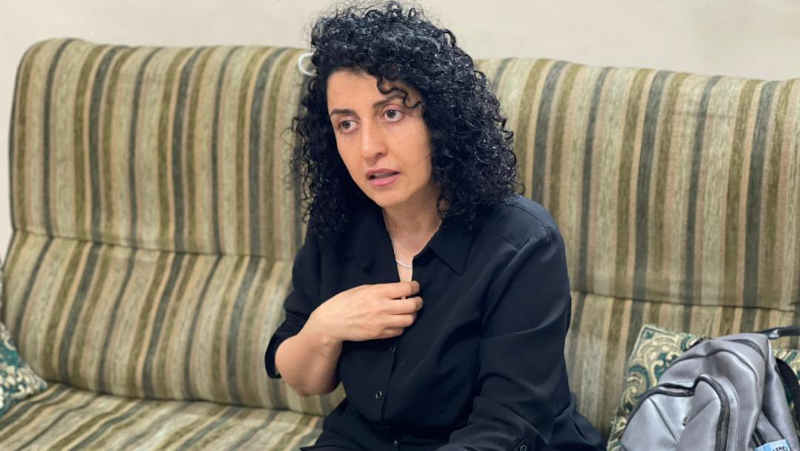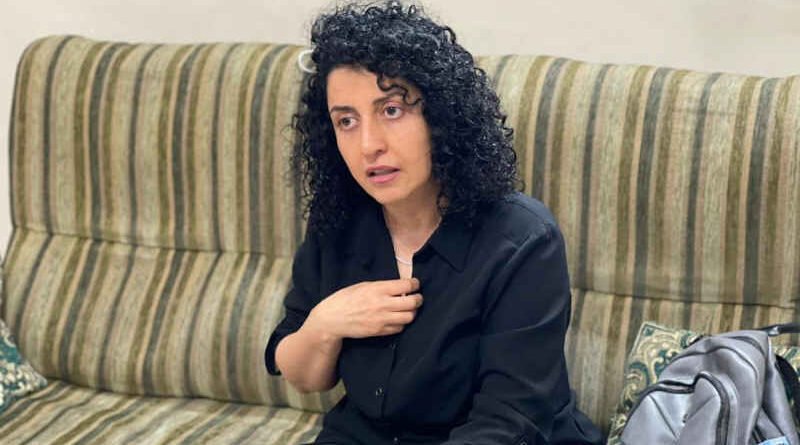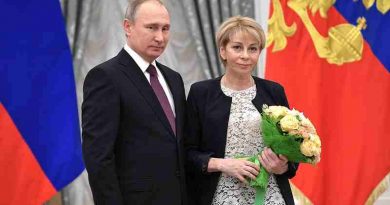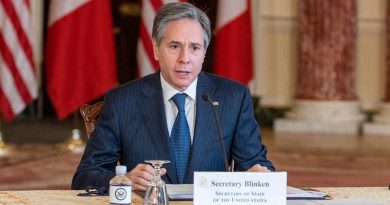Iran Urged to Release Human Rights Defender Narges Mohammadi

Iran Urged to Release Human Rights Defender Narges Mohammadi
Iran must stop repeatedly sentencing and imprisoning women human rights defenders in a revolving prison door that will never let them be free, says the Gulf Centre for Human Rights (GCHR).
According to a communique issued on May 20, GCHR said woman human rights defender Narges Mohammadi was taken back to Qarchak Prison on 12 April 2022 after being released on medical furlough following heart surgery in February 2022. Since then, she has been taken to court and handed additional sentences.
Mohammadi, 50, is an Iranian human rights activist and the vice president of the Defenders of Human Rights Center (DHRC), headed by Nobel Peace Prize laureate Shirin Ebadi.
In October 2020, Mohammadi was released from prison after a 10-year sentence was commuted due to health concerns. She worked with the Campaign for Step-by-Step Abolition of the Death Penalty (known as Legam). She was in prison since May 2015, after being sentenced in 2012 to six years in prison for her human rights work.
However, in May 2021, Branch 1188 of Criminal Court Two in Tehran sentenced Mohammadi to two-and-a-half years in prison, 80 lashes and two separate fines for charges that include “spreading propaganda against the system.” She was arbitrarily arrested on 16 November 2021 by Ministry of Intelligence agents who beat her before taking her away to Evin Prison.
On 12 January 2022, according to GCHR, following a five-minute trial with no lawyer, Mohammadi was sentenced to an additional eight years and two months in prison, and 74 lashes on charges of “assembly and collusion to act against national security” and “acting against national security and disrupting public order.”
She was also sentenced to internal exile, a ban on giving statements to the media, using social media platforms, or participating in political groups. She was then transferred from Evin Prison to Qarchak Prison, but returned home after heart surgery in February 2022.
Other women human rights defenders who have been in and out of prison are Right Livelihood laureate Nasrin Sotoudeh, a prominent human rights lawyer. In December 2020, according to GCHR, Sotoudeh was returned to prison while she was weak and ill from the effects of Covid-19 and a hunger strike protest. The authorities cruelly returned her to prison on the eve of the Right Livelihood Awards.
Sotoudeh was arrested on 13 June 2018, but had been in and out of prison since 2010. On 11 March 2019, she was sentenced to combined penalties of 148 lashes and 38 years in prison, in two cases related to her work against the death penalty, and in support of the movement against the compulsory hijab.
In April 2021, two imprisoned women human rights defenders, Nazanin Zaghari-Ratcliffe and Golrokh Ebrahimi Iraee, were sentenced to an additional one year in prison, on top of previous sentences. Iraee was sentenced in absentia by Branch 26 of the Revolutionary Court of Tehran on the charge of “propaganda against the state.”
Iraee and her husband, activist Arash Sadeghi, were arrested at home on 24 October 2016 and sentenced to prison. She was released and then rearrested in 2019 and has been serving a prison term of three years and seven months. In May 2021, Sadeghi was released after nearly six years in prison.
On 16 March 2022, Zaghari-Ratcliffe was finally freed from prison and returned to her family in the United Kingdom, along with another British-Iranian, Anoosheh Ashoori.
On 24 January 2022, woman human rights defender Atena Daemi was released from Lakan prison, in Rasht. In June 2020, Daemi, who was serving seven years in prison, was charged with “disturbing order” after being accused of chanting anti-government slogans on the anniversary of Iran’s 1979 revolution.
She was sentenced to five years in prison in 2016 and in September 2019, a court added two years and one month to her sentence for “insulting” and “disseminating anti-government propaganda” after she wrote an open letter from prison criticising the execution of political prisoners.
In April 2022, she gave an interview to the Centre for Human Rights in Iran, in which she said, “I spent seven years of my life in prison. My family suffered a lot. They were threatened and assaulted…. Nevertheless, I shouldn’t be talking about my own problems. I should be the voice of other prisoners–now that I’m out of prison.”
Meanwhile, GCHR urges the authorities in Iran to immediately and unconditionally release Narges Mohammadi, Nasrin Sotoudeh, Golrokh Ebrahimi Iraee, and Alieh Motalebzadeh along with all human rights defenders, journalists and activists in Iran.
In its communique, GCHR asks the authorities to stop arbitrarily arresting human rights defenders as a result of their participation in peaceful human rights activities, including women’s rights advocacy.
It further demands that all human rights defenders in Iran must be allowed to carry out their human rights activities without fear of reprisals and free of all restrictions, including judicial harassment.






